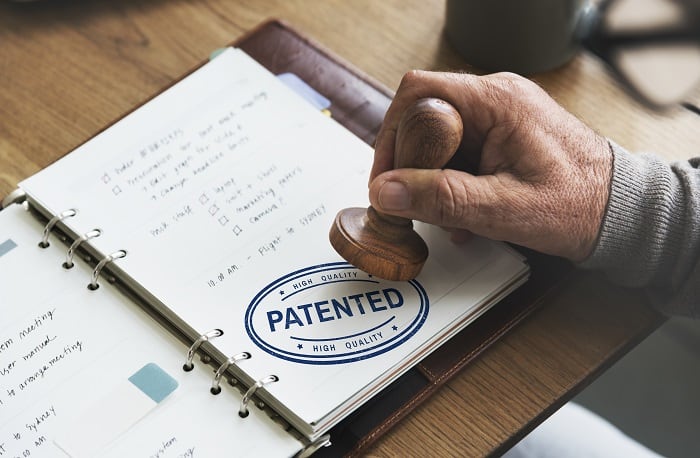Table of Contents

The post-pandemic market has comprehended the numerous advantages of digitalizing a business. Aside from the obvious increase in productivity, digitalization significantly cuts down operational costs. However, with the establishment of a business’s online presence, questions concerning the ownership of the medium arise.
Most brands are seeking website development companies that provide customized services. Customized websites are more efficient and save up resources that may otherwise be expended on web development. However, the issue with buying or selling customized websites is the risk of disagreements about ownership over various components that constitute website development. Therefore, the queries surrounding prospective infringement by either party are based. Hence, developers and businesses that provide or seek web development ought to fully understand the legal provisions concerning intellectual property in web development.
What is Intellectual Property in Web Development?
Generally, the property is an asset that can either be owned and possessed physically or can be liquidated. Intellectual property is ownership of creative endeavors and is not tangible. Simply put, intellectual property is your right upon your creation. It protects someone else from unfairly reaping benefits from your invention. In the case of Web Development, Intellectual Property Ownership is more complicated than copyright over artistic or scientific innovations. This is because website development is generally not an independent innovation of one individual. It comprises pre-existing, customized, and open-sourcing. Additionally, the website is in operation, and its content, logo, data, etc are owned and added by the operator.
Intellectual Property Ownership of Source Code
Source Code is the primary programming statement for your website. It is distinct from the contents of the site that a user might regard when they visit the site. A source code has similar status to a “literary work ” and is protected by the law as the creator’s intellectual property.
While ” intellectual property of the source code belongs to the creator” is a rule, there might be exceptions. If you are a web developer or part of a no-code weweb agency that wants to protect the ownership of their source code, it is preferable to establish that in the agreement while making the exchange. This will solidify your code as your intellectual property and increase the weightage of your claim in case of unauthorized use.
How can you Secure Intellectual Property Ownership?
- Copy Rights
You can agree on which entity holds copyrights over what deliverable of the site. Copyright grants you the right to re-create, publish and capitalize on your intellectual property right.
As a web developer, your primary concern would be to copyright the source code of your website to have exclusive rights over its usage. However, you need to be cautious while doing so. You might have to reveal your source code for copyright documentation. This may give your competitors an edge.
- Patent
The creator can obtain a patent for their creation from a government agency. This permits the owner to prevent others from re-creating or selling the creation for a specific period.
To patent a website you would have to identify elements of the website that you would like to patent.
- Trade Secrets
Company policies or practices not commonly known to the public are known as trade secrets. Information regarded as trade secrets provides businesses with a competitive edge over their rivals and is frequently the result of in-house research and development. Oftentimes companies require that you sign Non Disclosure Agreements if you will be dealing with trade secrets.
In order for your information to be regarded as a trade secret in the USA, a corporation must make reasonable efforts to conceal it. A trade secret must contain knowledge, and a secret must have economic worth.
Law concerning Intellectual Property in Web Development
Copyright provides the owner the absolute right to adapt, use or publish their work. In the United States, the Copyrights to a website are inherently protected. You need not be registered to secure copyrights of your development. If you have drafted a copyright exchange agreement, it is preferable to register. You would have to register through the governmental copyright portal and pay a fee ranging from $35 to $55.
In the UK, there is no official website copyright registration system. The Copyright, Designs, and Patent Act, of 1988 provides the copyright of creation to the first creator.
If the website is created by an employee working for a company, then the employee has the Copyright to the elements in question.
If you are a consumer purchasing a website from a web developing company, you will have to sign an agreement with the company discussing the transfer of copyrights. This should entail all the deliverables of the website. It should clarify the ownership concerning the varied elements of the website. The assignment of copyright is not acceptable if no written agreement consisting of signatures of the assignors has been conducted.
In most nations, your authentic creation is automatically guaranteed copyright. If your domestic legislation does not proactively protect your rights, it is wise to seek alternative copyright registration for your website.
Transfer of Intellectual Property
You may either have a full transfer of intellectual Property Rights for the website or you may acquire a license to use it. A license to use does not give you ownership over the components of the website. You may however use them as per the terms.
whether you would prefer to have the full transfer or the license to use depends on various conditions. For instance, if the source code for your website is derivative from open or pre-existing software, the developer would not find merit in licensing your use.
Likewise, if you feel that you might work with multiple developers in the future stages of web development, it is beneficial to have a full transfer of intellectual property Rights. This will give you the liberty to make necessary changes without the concern of permit or intellectual property-related conflicts.
If you are a developer who designs for personal usage or the usage of your company, you do not have to face the issue of transfer or licensing. However, if you are developing for clients, you must consider the benefits of the components you have instilled in the website and what you would like to preserve for your future reuse. In this situation, licensing your creation is the most viable option.
Whether licensing or Complete transfer, all the details of the exchange need to be clearly outlined in the agreement.
Conclusion
In web development, the primary owner of the intellectual property is the creator. Clients can either purchase the complete transfer right of the site or conduct licensed usage. Intellectual Property rights can be secured through copyrights, patents, or trade secrets. It is obligatory to sign a written agreement for the exchange of intellectual property rights.
You may also like:
- Protect your IP
- Copyright License Agreement (Artistic Work) Template
- Copyright Assignment (Literary Works) Template
- Policy on Use of Copyrighted Material Template
- How does a Copyright License Agreement protect me?
Raveena Rani
Raveena is a seasoned International IP Counsel with a unique blend of engineering and legal acumen, specializing in Intellectual Property, Technology Law, and Corporate Transactions. She has extensive experience drafting and negotiating NDAs, commercial agreements, and legal documents in the areas of M&A, SaaS, and AI. Her global perspective is complemented by hands-on internships, corporate counsel roles, and mentoring initiatives. She thrives at the intersection of law, business, and technology.






